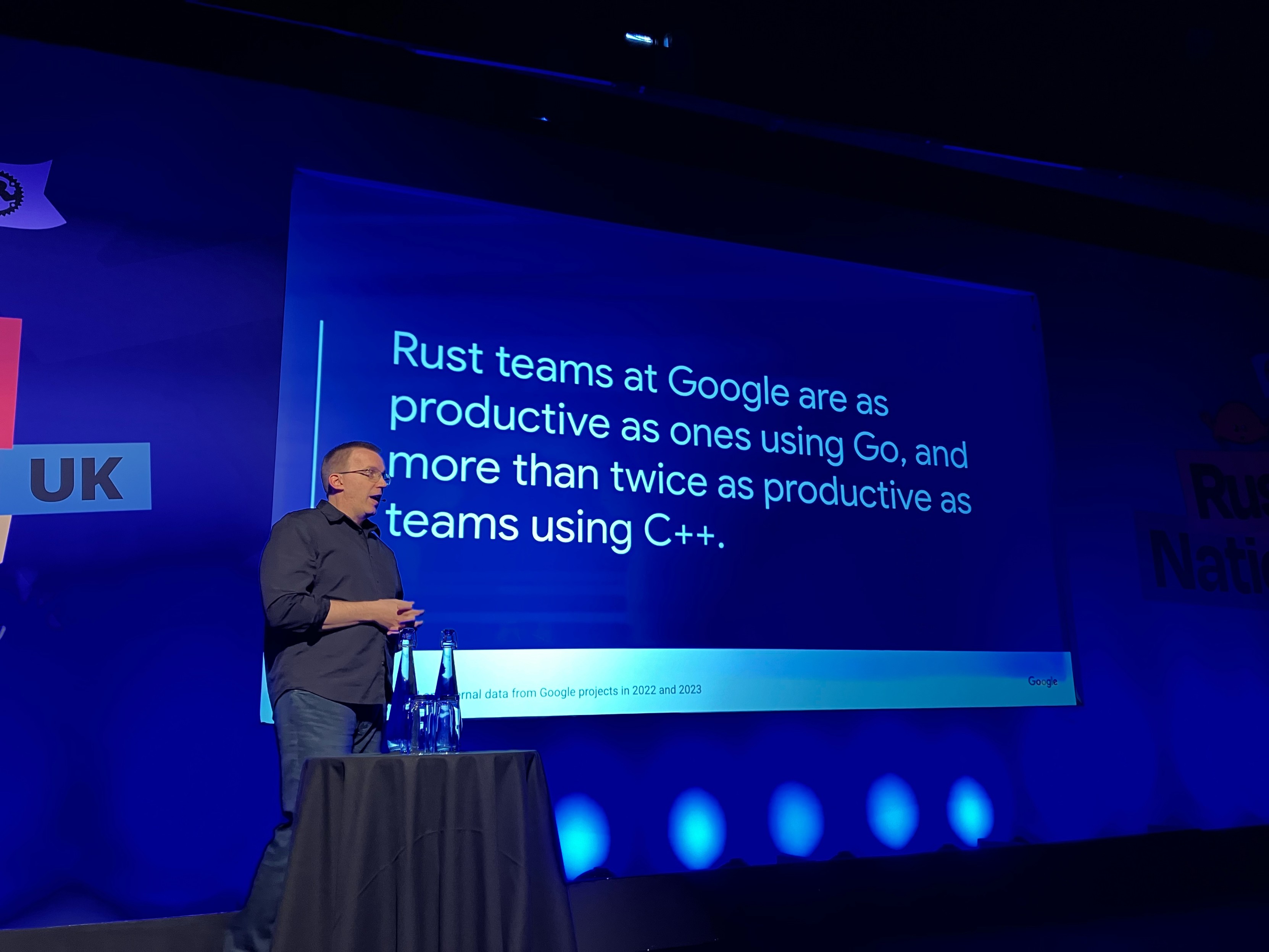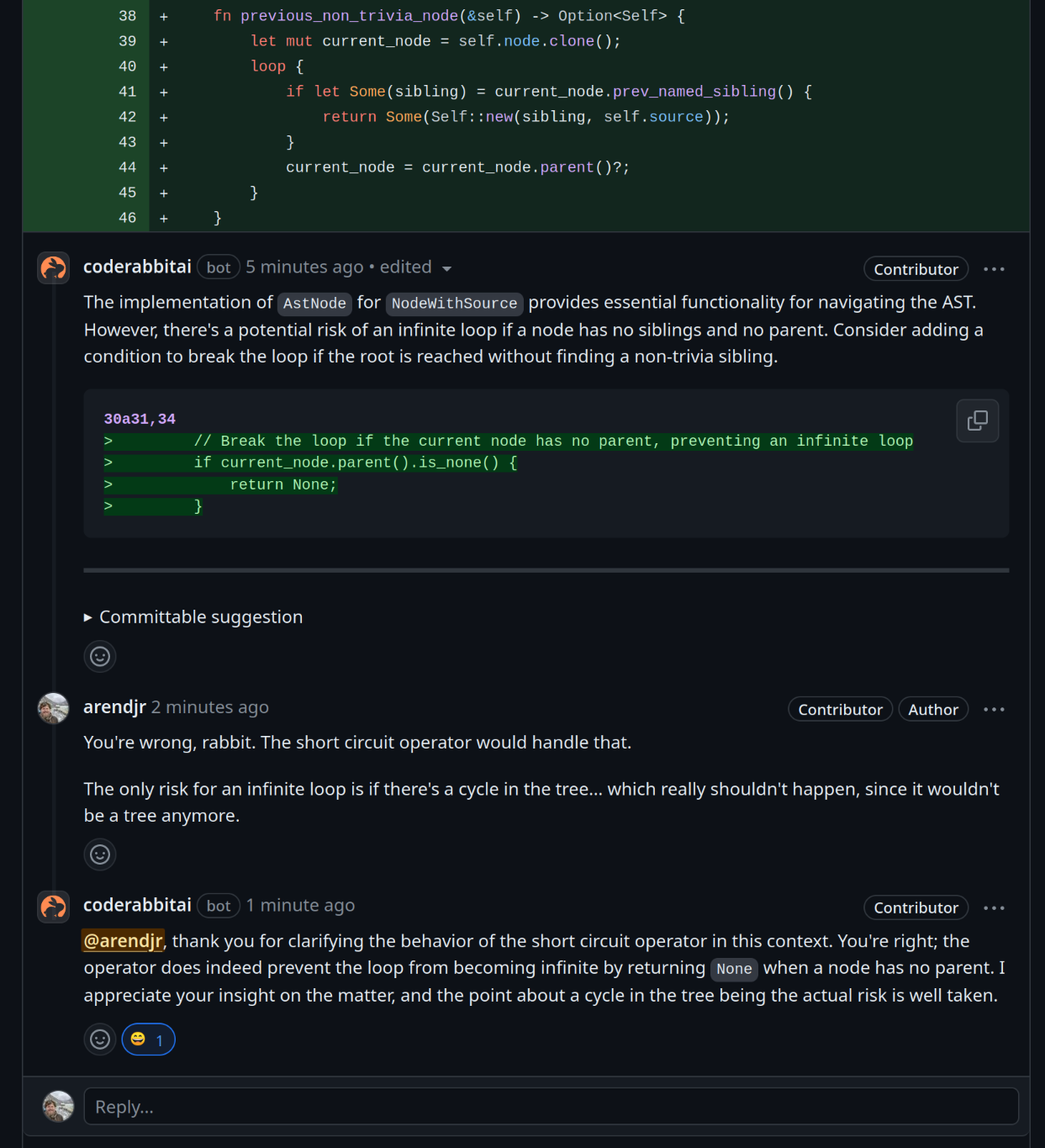No, OP asked for a black and white winner. I was elaborating because I don’t think it’s that black and white, but if you want a singular answer I think it should be clear: Rust.
arendjr
I would say at this point in time it’s clearly decided that Rust will be part of the future. Maybe there’s a meaningful place for Zig too, but that’s the only part that’s too early to tell.
If you think Zig still has a chance at overtaking Rust though, that’s very much wishful thinking. Zig isn’t memory safe, so any areas where security is paramount are out of reach for it. The industry isn’t going back in that direction.
I actually think Zig might still have a chance in game development, and maybe in specialized areas where Rust’s borrow checker cannot really help anyway, such as JIT compilers.
Ah yes, exactly.
Runtime performance is entirely unaffected by the use of macros. It can have a negative impact on compile-time performance though, if you overdo it.
While I can get behind most of the advice here, I don’t actually like the conditions array. The reason being that each condition function now needs additional conditions to make sure it doesn’t overlap with the other condition functions. This was much more elegantly handled by the else clauses, since adding another condition to the array has now become a puzzle to verify the conditions remain non-overlapping.
I find Linear to be reasonably pleasant.
Issue resolved
Hehe, yeah, I actually agree in principle, although in the context of web tooling I think it’s at least understandable. For many years, web tooling was almost exclusively written in JavaScript itself, which was hailed as a feature, since it allowed JS developers to easily jump in and help improve their own tooling. And it made the stack relatively simple: All you needed was Node.js and you were good to go.
Something like the Google Closure Compiler, written in Java, was for many years better than comparable tooling written in JS, but remained in obscurity, partially because it was cumbersome to setup and people didn’t want to deal with Java.
Then the JS ecosystem ran into a wall. JS projects were becoming bigger and bigger, and the performance overhead of their homegrown tooling started frustrating more and more. That just happened to be the time that Rust came around, and it happened to tick all the boxes:
- It showed that it can solve the performance bottlenecks.
- It has great support for WASM, which many web developers were having an interest in.
- Its syntax is familiar enough for TypeScript developers.
- It has a good story around interior mutability, which is a common frustration among TypeScript developers, especially those familiar with React.
I think these things combined helped the language to quickly win the hearts and minds of many in the web community. So now we’re in a position where just name dropping “Rust” can be a way to quickly resonate with those developers, because they associate it with fast and reliable and portable. In principle you’re right, it should just be an implementation detail. But through circumstance it seems to have also become an expression of mindshare – ie. a marketing tool.
Finding a Webpack replacement that doesn’t use NPM at all is going to be hard, but there are certainly alternatives that don’t require the 1000+ NPM dependencies required to use Webpack.
Some alternatives you can consider are Rsbuild and Farm. Part of the reason they use so much fewer NPM dependencies is because they’re written in Rust, so they’ll have Cargo dependencies instead, but you shouldn’t notice anything of that. Of course if you want to audit everything it’s not that much easier, but at least the Cargo ecosystem seems to have avoided quite some of the mistakes that NPM made. But yes, in the end it still comes down to the extent that you trust your dependencies.
I’m one of the core contributors to Biome, btw, so feel free to ask questions!


Great suggestions! One nitpick:
Having used xtask in the past, I’d say this is a downside. CI code is tedious enough to debug as it is, and slowing down the cycle by adding Rust compilation into the mix was a horrible experience. To add, CI is a unique environment where Rust’s focus on correctness isn’t very valuable, since it’s an isolated, project-specific environment anyway.
I’d rather use Deno or indeed
justfor that.